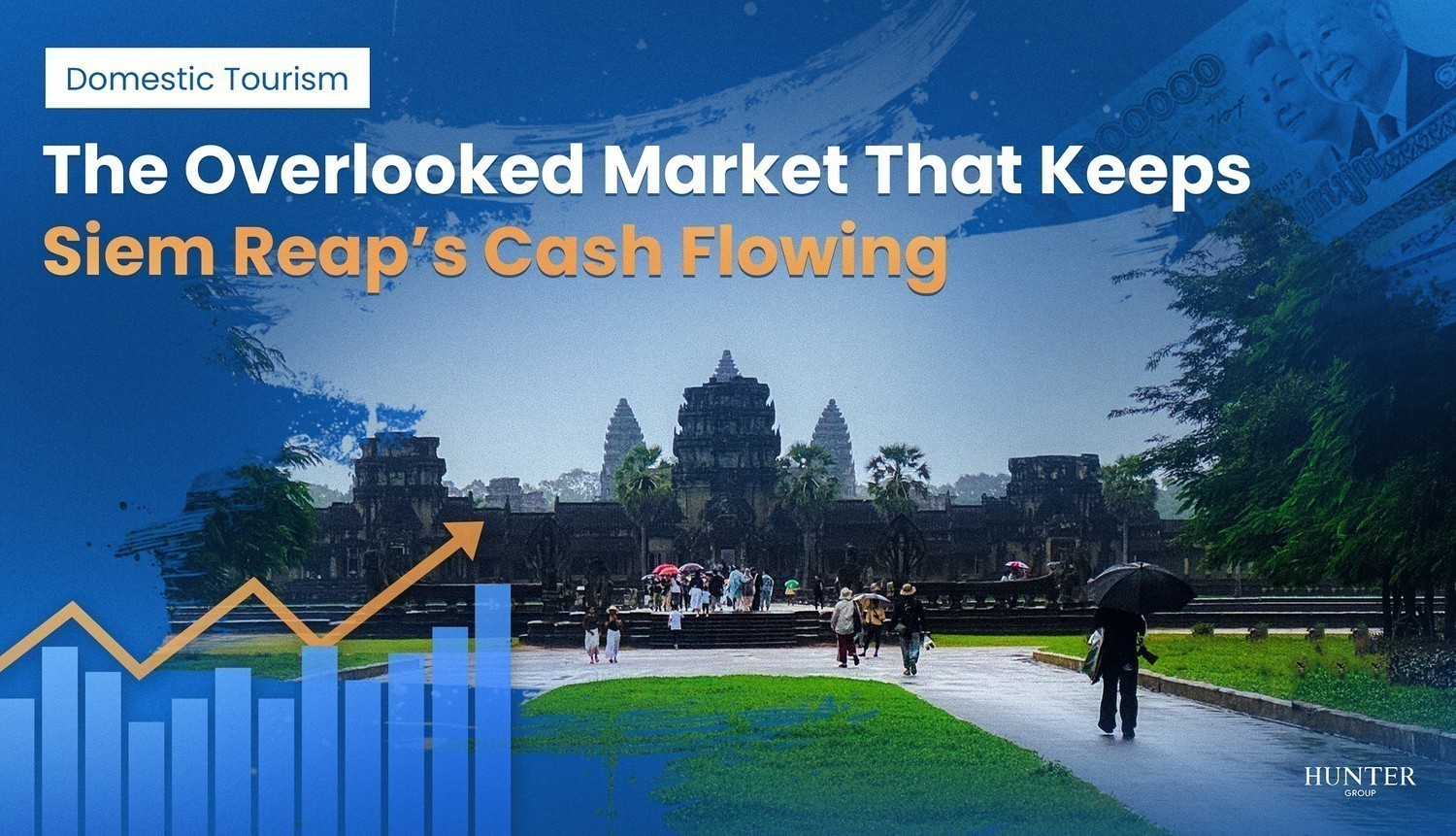Once filled with tour buses, crowded
temples, and foreign visitors, Siem Reap changed almost overnight when the
COVID-19 pandemic struck in early 2020. As global travel came to a halt,
Cambodians turned their attention inward, exploring their own country and
breathing new life into local destinations.
Today, with improved infrastructure,
new international airports, and easier domestic connectivity, local travelers
now drive Cambodia’s tourism recovery and play a vital role in Siem Reap’s
growing economy. The upcoming PHN-SR Expressway is expected to make travel to
and from Siem Reap more convenient, further increasing domestic tourism.
According to the Ministry of
Tourism, Siem Reap welcomed 2.6 million domestic tourist arrivals in the
first nine months of 2025 — over a 71% increase compared to the same
period in 2024. This consistent growth shows that local travelers are no
longer a temporary trend but a backbone market that businesses can
build long-term relationships with.
Domestic Travel Patterns and
Spending
Local tourists can travel
year-round, creating steady demand that helps businesses avoid the seasonal
highs and lows tied to international tourism.
The rise of social media influencers
and content creators has amplified this trend. Platforms like TikTok, Facebook,
Instagram, and YouTube showcase destinations in ways that inspire locals to
travel more. Their storytelling and aesthetic videos make places like Siem
Reap, Sihanoukville, Kampot, Kep, Koh Kong, and Koh Rong more appealing to
local travelers.
Adding to this momentum, the viral
trend “Life Hurts, Siem Reap Heals” has captured the attention of
domestic travelers seeking healing experiences and short getaways. The
emotional and cultural pull of Siem Reap is stronger than ever.
Local travelers also tend to spend more on small and local businesses rather than large international chains, from boutique hotels and cafés to souvenir shops and restaurants. This spending pattern circulates money within communities and fuels broader economic growth.
• Accommodation: $15–$25 per night
• Food: $5–$15 per day
• Motorbike rental: from $8-$15 per day, depending on the motorbike’s model and condition
• Tuktuk: from $8-$25 per day
This suggests the average domestic tourist spends roughly $120 per 2–3-day trip. With many locals taking 2–3 trips per year, annual spending per person can reach $240–$370, providing consistent revenue opportunities for businesses tailored to this market.
Investor Opportunities
Investors who adapt to this shift can tap into a stable, repeatable market. Potential opportunities include:
• Boutique hotels: catering to a small group of friends or family, looking for an affordable price stay, for a weekend getaway
• Wellness & Retreat Resort: combining relaxation, yoga lessons, and local spa sessions. Angkor Grace Wellness & Resort is already leading the scene
• Weekend pop-up market: weekend food fair offering local Khmer foods, live music, and dance performances, offering a fresh feeling to Siem Reap’s laid-back vibe
• Creative & cultural hubs: a space for an art studio, a local artist exhibition hall, and a pop-up market
• Bookstore Café: Siem Reap’s book cafés mainly target coffee drinkers, but there’s room for a true bookstore café that sells books while offering cozy corners for readers, coffee lovers, and Gen Z content creators.
By focusing on repeat visits and tailored experiences, investors can benefit from a loyal customer base, mitigating risks tied to seasonal or international travel fluctuations.
While international visitors will always matter for Cambodia’s tourism story, it’s the local travelers who are quietly shaping the next chapter, especially in Siem Reap. For investors willing to pivot, to speak to the Khmer weekend wanderer rather than the once-in-a-lifetime temple visitor, the opportunity is rich.
Project Marketing & Communication
